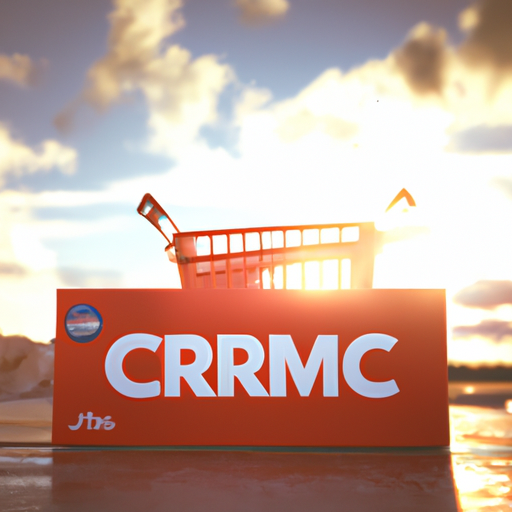10 + Benefits of CRM for Consumer Goods
Table of Contents
- Introduction
- How Can CRM Elevate Your Customer Retention Strategy?
- Leveraging CRM for Enhanced Customer Engagement
- The Upside of Automating CRM Processes
- Strategies to Optimize CRM Implementation
- Unlocking Customer Insights Through CRM for Consumer Goods
- Conclusion
Introduction: Why is CRM the Game-Changer for Your Business?
Envision having a window into your clients’ thoughts to better understand their wants, customize your interactions, and provide them with such exceptional service that they become devoted. Customer Relationship Management (CRM) has that kind of power for companies in the consumer products industry. It’s more than simply a tool; it’s your covert weapon to beat the competition and increase revenue.
How Can CRM Elevate Your Customer Retention Strategy?
Have you ever questioned how certain businesses manage to keep their clients coming back for more? Their strong CRM systems are the key. Using CRM for consumer goods, you may delve deeply into customer data to uncover preferences and habits, resulting in individualized interactions that appeal to the individual.
Automation with a Personal Touch: CRM solutions let you keep track of every conversation, giving your customer support staff access to all the data they need to help clients feel appreciated and understood. And what do you know? Customers are happier as a result, and they are more inclined to return.
Customized Promotion: Have you ever gotten an offer that felt like it was meant just for you? CRM in action, that is. Businesses may create tailored marketing efforts that resonate with each individual consumer and increase engagement and retention by utilizing customer data.
Perceptive Analytics: Are you curious about the future desires of your clientele? By identifying trends and patterns, CRM analytics provide you with the insight to make adjustments and satisfy customers before they even express their expectations.
“CRM isn’t just about managing relationships; it’s about forging lasting bonds that drive growth, It’s like having a crystal ball that reveals exactly what your customers want.”
Tamer Badr, Founder and CEO of Singleclic
Leveraging CRM for Enhanced Customer Engagement
The currency of today’s business environment is engagement. Businesses in the consumer products industry may guarantee that this currency never depreciates by utilizing CRM systems.
Automation and Empathy: Envision automating repetitive chores while retaining a human touch. CRM solutions take care of all the grunt work, from handling orders to answering questions, freeing up your staff to concentrate on what they do best—developing relationships.
Loyalty programs: Who doesn’t enjoy receiving a reward for remaining loyal? CRM-driven loyalty programs provide insights into client preferences, opening the door to tailored interactions that promote loyalty, in addition to rewarding repeat business.
Direct Dialogue: Every marketing campaign might seem like a one-on-one discussion with CRM for consumer goods. Customized communications strengthen the bond between you and your audience by making them feel heard and understood.
“Our CRM strategy is about making every customer feel like the only customer,” shares Tamer, whose approach has transformed customer engagement at Singleclic.
The Upside of Automating CRM Processes
Even though there are many advantages to CRM, automating these procedures can revolutionize the way consumer products businesses operate.
Better, Faster, Smarter Customer Service: Automation personalizes service and expedites response times, giving clients a sense of being understood and appreciated.
Streamlining Operations: Businesses may accomplish more with less by automating CRM operations, which lowers expenses while increasing productivity.
A Hint of Humor: Keep in mind that although automation is capable of handling a lot, it still cannot laugh at your jokes, so make sure your interactions are lighthearted!
Strategies to Optimize CRM Implementation
Accept Automation: Working smarter, not simply harder, is the way to go. Your staff may concentrate on strategic goals since automation guarantees correctness and frees up time.
Data-Driven Decisions: Utilize CRM data to precisely customize your services and plans to meet the needs of your customers.
Customize Like a Pro: Each and every contact with a customer should feel special and personalized. CRM for consumer goods enables you to provide that customized experience.
Integration of Social Media: This is where your clients congregate. Having conversations with them on these platforms will greatly enhance your CRM efforts.
Continuous Learning: As the environment changes, so too should your team’s knowledge on how to use CRM to its maximum advantage.
Unlocking Customer Insights Through CRM for Consumer Goods
CRM is more than just customer relationship management. It contains a wealth of information about possible new items and markets. Businesses may stay ahead of the curve and predict market trends by evaluating CRM data, which helps them stay relevant in their consumers’ lives at all times.
Conclusion: Your Next Steps in CRM Mastery
CRM for Consumer Goods is the cornerstone of contemporary business strategy, not just another tool in your toolbox. CRM allows you to do more than just sell things; it also helps you develop connections and provide experiences that your clients will find truly meaningful. It’s time to maximize CRM’s potential and take your company to new heights!
Ready to transform your business with CRM for consumer goods? Connect with industry leaders like Microsoft Dynamics 365, Odoo, and IBM, and start your journey toward unmatched customer loyalty and sustained growth.
To learn more about 2 Competing CRM systems, Check this out!







